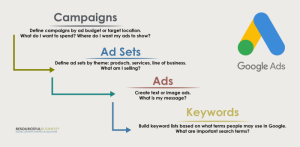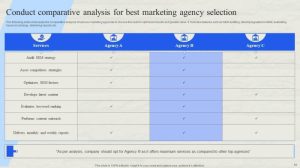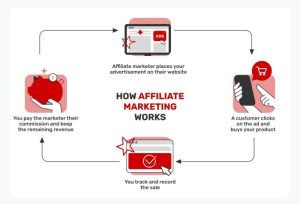
Dive into the world of paid advertising for e-commerce where strategic ads are the key to skyrocketing sales and success. From defining the role of paid ads to exploring different platforms, this topic will unravel the secrets to effective online marketing.
Learn how successful e-commerce businesses have harnessed the power of paid advertising to dominate the digital landscape and emerge as industry leaders.
Paid Advertising for E-commerce

Paid advertising plays a crucial role in driving sales for e-commerce businesses by increasing visibility, attracting potential customers, and ultimately leading to conversions.
Types of Paid Advertising Platforms for E-commerce
There are various types of paid advertising platforms suitable for e-commerce, including:
- Search Engine Marketing (SEM) through Google Ads
- Social Media Advertising on platforms like Facebook, Instagram, and Twitter
- Display Advertising on websites, blogs, and mobile apps
- Remarketing campaigns to target users who have previously visited your site
Benefits of Utilizing Paid Advertising Strategies in E-commerce
Utilizing paid advertising strategies in e-commerce provides several benefits, such as:
- Increased brand visibility and reach to a wider audience
- Precise targeting options to reach potential customers based on demographics, interests, and behaviors
- Measurable results and ROI tracking through analytics tools
- Quick and scalable way to drive traffic and generate sales
- Ability to test and optimize campaigns for better performance
Examples of Successful E-commerce Businesses Using Paid Advertising
Several e-commerce businesses have effectively used paid advertising to drive sales and grow their online presence. Examples include:
- Amazon: Leveraging search engine marketing and display advertising to reach millions of online shoppers
- Shopify: Utilizing social media advertising to promote their e-commerce platform and attract new merchants
- Zappos: Implementing remarketing campaigns to target users who have viewed products but not made a purchase
Marketing E-commerce

In the competitive world of e-commerce, marketing plays a crucial role in the success of any online business. It is essential for attracting customers, increasing brand awareness, and driving sales. Let’s delve into the importance of marketing in the e-commerce industry and explore the various strategies that can be employed.
Traditional Marketing vs Digital Marketing Strategies
Traditional marketing methods, such as print ads, TV commercials, and direct mail, have been used for decades to reach a broad audience. However, digital marketing strategies have revolutionized the way businesses promote their products and services online. Digital marketing offers a more targeted approach, allowing e-commerce businesses to reach specific demographics and track the effectiveness of their campaigns in real-time.
- Traditional Marketing:
- Reach a broad audience
- Less targeted
- Harder to track ROI
- Digital Marketing:
- Target specific demographics
- Track campaign performance in real-time
- Higher potential for personalization
Social media platforms have become powerful tools for e-commerce businesses to engage with their audience, build brand loyalty, and drive traffic to their websites.
Leveraging Social Media for Marketing
E-commerce businesses can leverage social media platforms like Facebook, Instagram, and Twitter to connect with their target audience and promote their products effectively. By creating engaging content, running targeted ads, and interacting with followers, businesses can build a strong online presence and increase brand visibility.
- Create visually appealing posts and ads to grab the attention of users
- Utilize influencer partnerships to reach a wider audience
- Engage with followers through comments, messages, and live streams
Marketing Plan for a New E-commerce Startup
For a new e-commerce startup, it is essential to create a comprehensive marketing plan to establish a strong online presence and attract customers. The plan should include a mix of digital marketing strategies tailored to the target market and business goals.
- Identify target audience and conduct market research
- Develop a strong brand identity and messaging
- Create a user-friendly website with high-quality product images and descriptions
- Implement tactics to improve search engine rankings
- Utilize email marketing campaigns to engage with customers and drive sales
Last Word
In conclusion, paid advertising for e-commerce is not just about running ads—it’s about crafting a winning strategy that captivates audiences and drives conversions. With the right approach, any e-commerce venture can thrive in the competitive online market.
FAQ Section
How important is paid advertising for e-commerce success?
Paid advertising is crucial for e-commerce success as it helps businesses reach a wider audience, drive targeted traffic, and increase sales.
Which paid advertising platforms are best for e-commerce businesses?
Platforms like Google Ads, Facebook Ads, and Instagram Ads are popular choices for e-commerce businesses due to their targeting options and reach.
Can small e-commerce startups benefit from paid advertising?
Absolutely! Paid advertising can level the playing field for small startups by allowing them to compete with larger brands and reach their target audience effectively.





